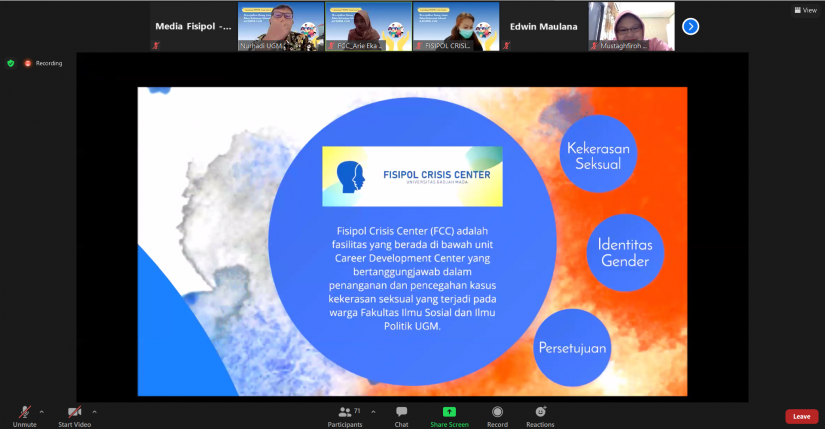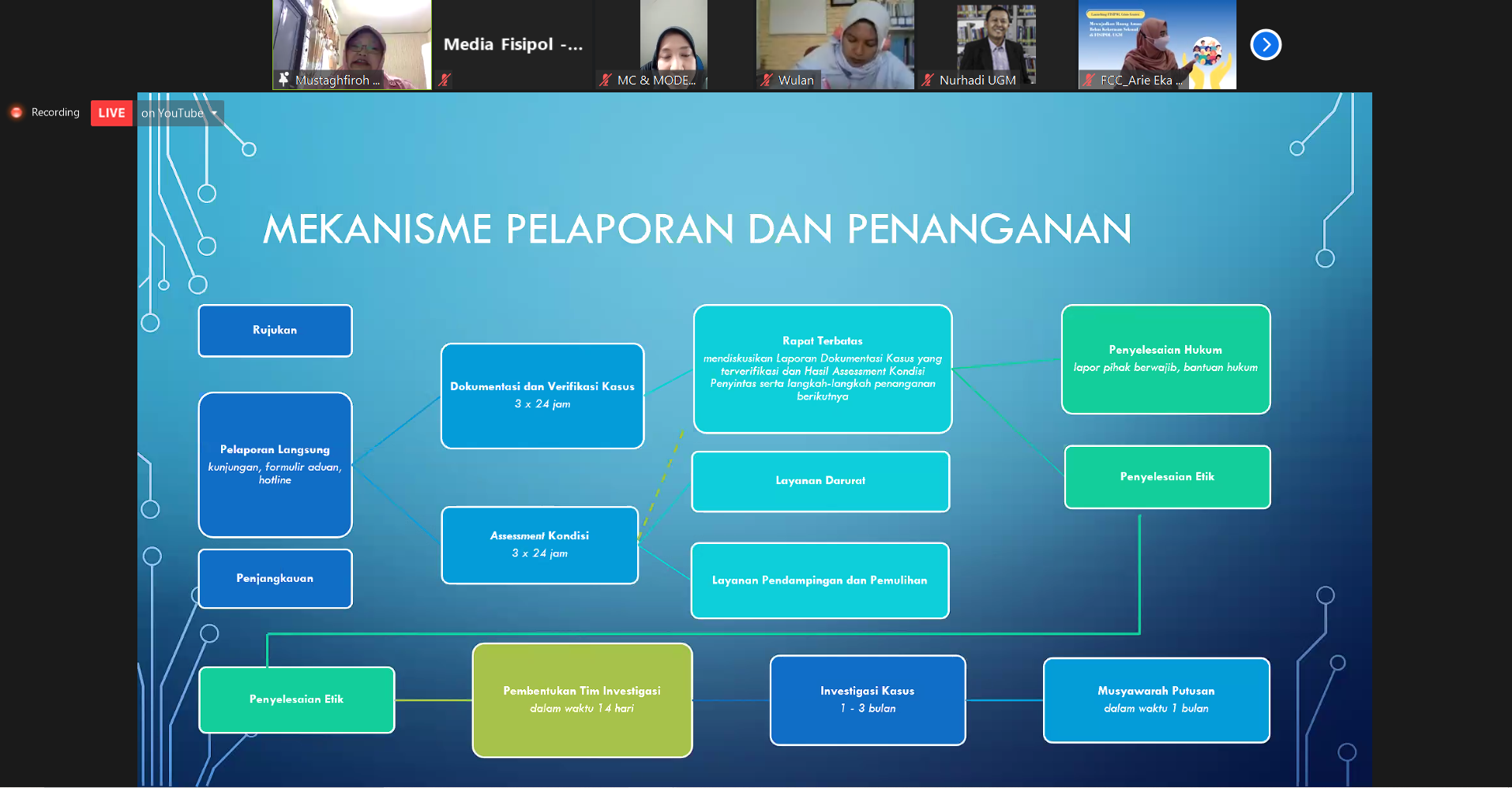
Yogyakarta, February 3rd 2021—Fisipol Crisis Center (FCC), one of FISIPOL UGM’s service related to the handling and prevention of sexual assault on campus was released last Wednesday (3/2). The unit was made to create a safe university environment from any form of sexual assault. The FCC launch titled “Creating a safe space from sexual assault in FISIPOL UGM” invited Mustaghfiroh Rahayu, M.A as the Adhoc FCC team who is also a lecturer from the Sociology Department of UGM, as well as Budi Wulandari who ia a psychology counselor in Women Crisis Center Rifka Annisa. The event was held through Zoom Meeting and was broadcasted through FISIPOL UGM Youtube channel.
In the welcoming speech, Nurhadi, PhD as FISIPOL UGM’s Vice Dean in the finance sector talks about the importance of FCC in the campus environment. The sexual assault case that happens in a variety of Indonesia’s campus is often unresolved, the handling is slow, and doesn’t take the side of the victim. Nurhadi said, with the existence of FCC the hope is that the university can be safe from sexual assault cases. “The dean is ready to support the FCC through human resources and through infrastructure,” he added.
The event is then followed by a presentation from Budi Wulandari, who is experienced in handling sexual assault cases through Rifka Annisa WCC. Wulan showed data of women and children clients that reported to Rifka Annisa every year. In 2020 alone, there are 314 recorded cases, starting from domestic violence, rape, sexual harrasment, and more. “The data shows only what is recorded and reported to Rifka Annisa. There are plenty of other cases that go unreported. This is an iceberg phenomenon,” she said. Wulan also explained the Online Based Gender Violence that has been happening during the Covid-19 pandemic.

The next speaker was Mustaghfiroh Rahayu, M.A as a part of the Adhoc FCC team as well as a part of the author of FCC guiding book that has been formulated since 2019. This Sociology Department lecturer called Ayu talks about the importance of awareness towards sexual assault cases that happens in the university and involves university members.
Ayu also talks about the principles of FCC, which are to give more attention to the victims, be gender-fair, don’t judge and differentiate, provide comfort without coercion, equality, secrecy and security, sensitivity to crisis, as well as empowerment. Related to those principles, Ayu said, “When we talk about sexual assault, women are not the only victim. That is why FCC proposes many principles. Therefore, the sexual assault handling doesn’t only focus on a certain gender, but also a certain sexual orientation”. FCC is committed to creating a safe space for sexual assault survivors as well as following through with the reports and supervising the recovery of survivors.
FCC have created a report and handling mechanism for survivors, including an investigation process as well as an ethical and law-based handling. There is also a prevention mechanism that will be implemented in several departments, such as through the education as well as structural governance department. “FCC is not the only actor in the front line, but the awareness towards sexual assault should be in everyone’s mind. There needs to be a synergy from many actors to create a safe campus,” Ayu said regarding her hope for FCC. Through this launch, FCC also released the Guide Book for Reporting, Handling, and Preventing Sexual Assault in FISIPOL UGM.
